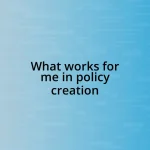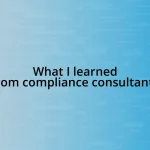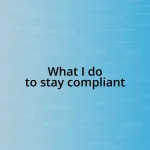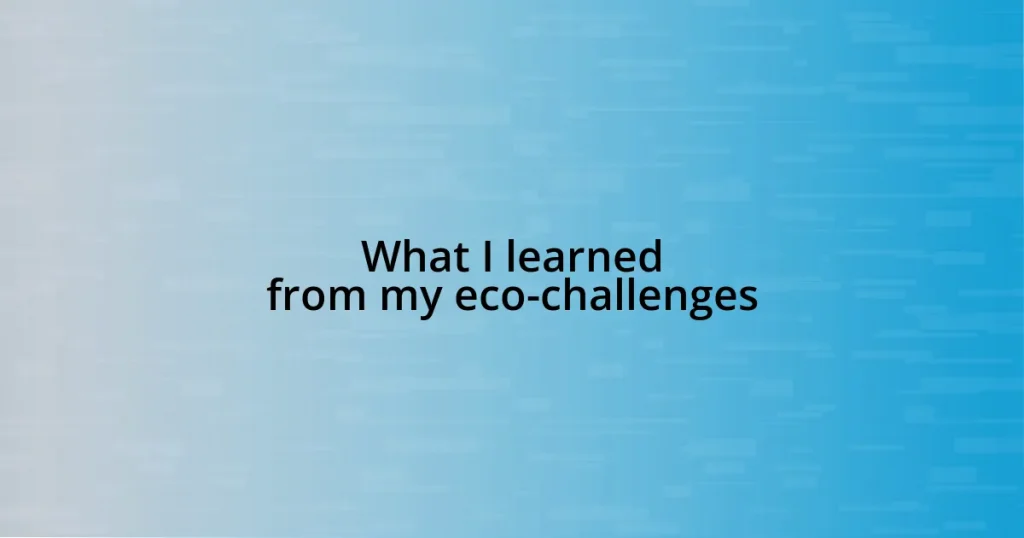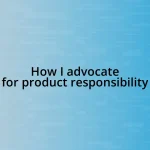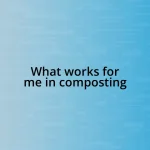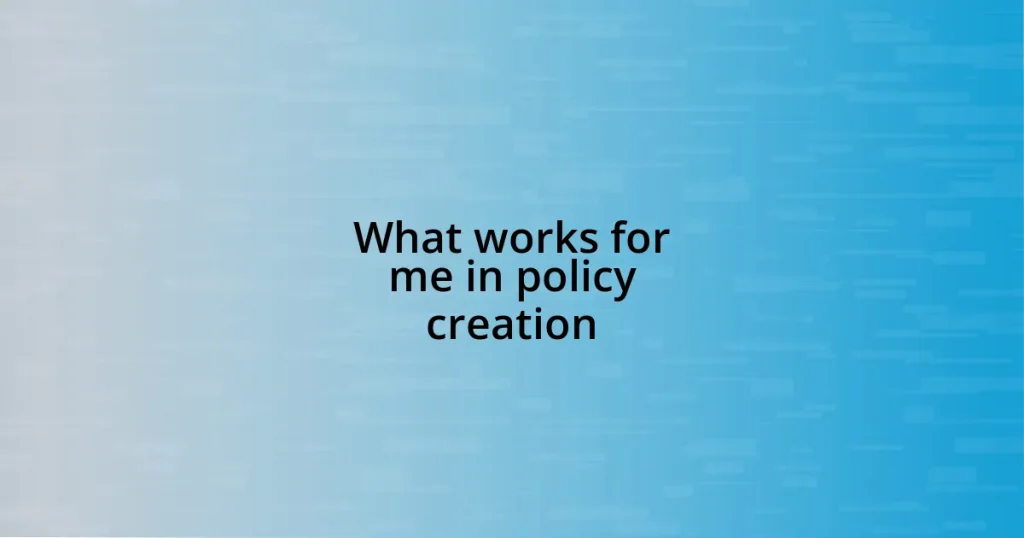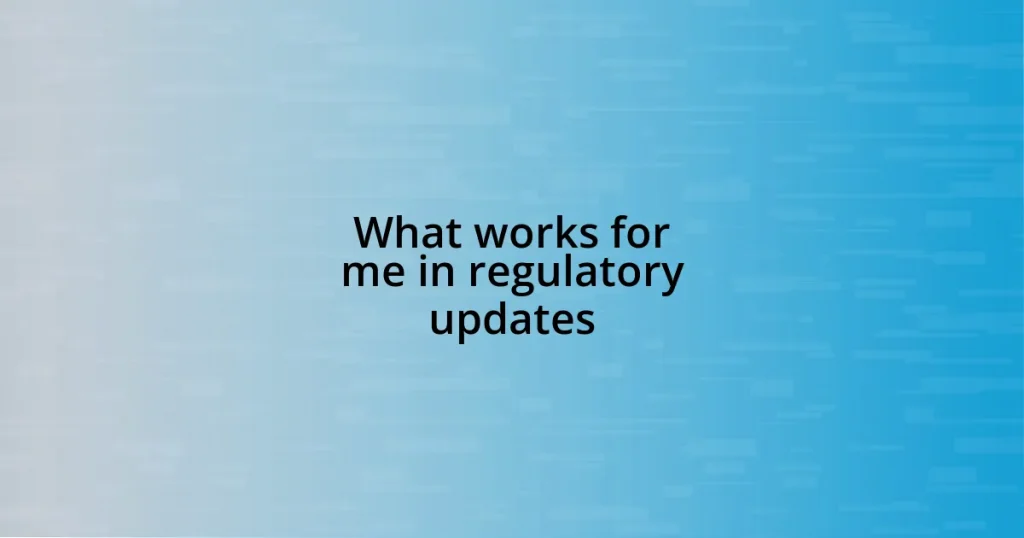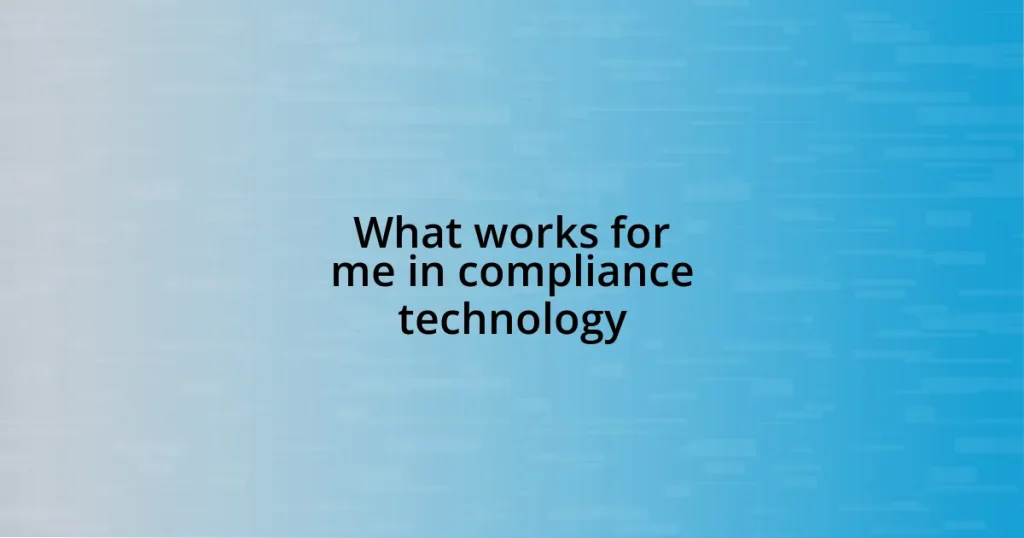Key takeaways:
- Eco-challenges drive personal and collective actions towards sustainability, transforming overwhelming issues into achievable goals.
- Participating in eco-challenges fosters community connections and encourages shared experiences, amplifying individual efforts.
- Mindful consumption and local sourcing enhance the meaningfulness of sustainable living, fostering appreciation and reducing carbon footprints.
- Storytelling and engaging activities effectively inspire others to join eco-friendly initiatives, creating a ripple effect of change.
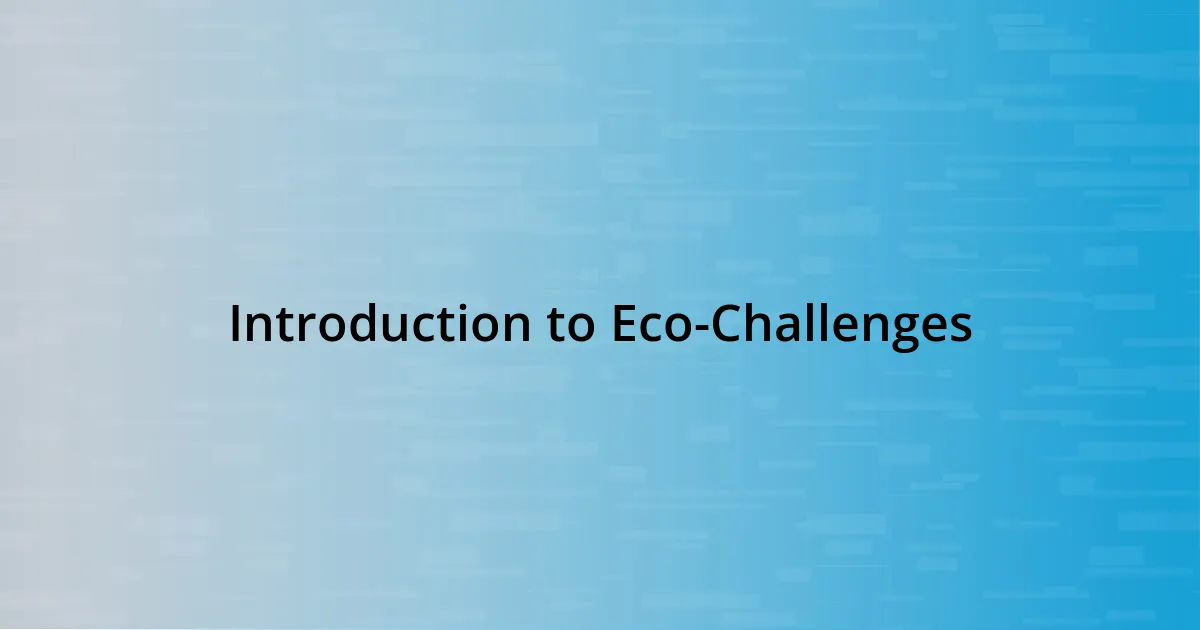
Introduction to Eco-Challenges
Eco-challenges have become more than just a trend; they represent a significant cultural shift towards sustainability and environmental awareness. When I first stumbled upon the idea of participating in one, I felt an immediate tug of curiosity—what if I could not only challenge myself but also contribute positively to the planet? It ignited a spark in me, turning what once felt like an overwhelming global issue into something actionable and personal.
In my early eco-challenge days, I remember feeling a mix of excitement and doubt. Could I really change my habits? I started with small adjustments, like reducing plastic use and biking instead of driving. Each little victory felt monumental, almost like a personal revolution. This transformation made me ponder—what if everyone took a similar leap toward greener choices? The collective impact could be astonishing!
Throughout my journey, I’ve also realized that eco-challenges are not just about individual actions but the stories we share and the community we build. It’s heartwarming to connect with others who are equally passionate about making a difference. Have you ever felt that rush of camaraderie when tackling a common goal with like-minded individuals? That’s the beauty of eco-challenges—they create a space for shared experiences and growth.
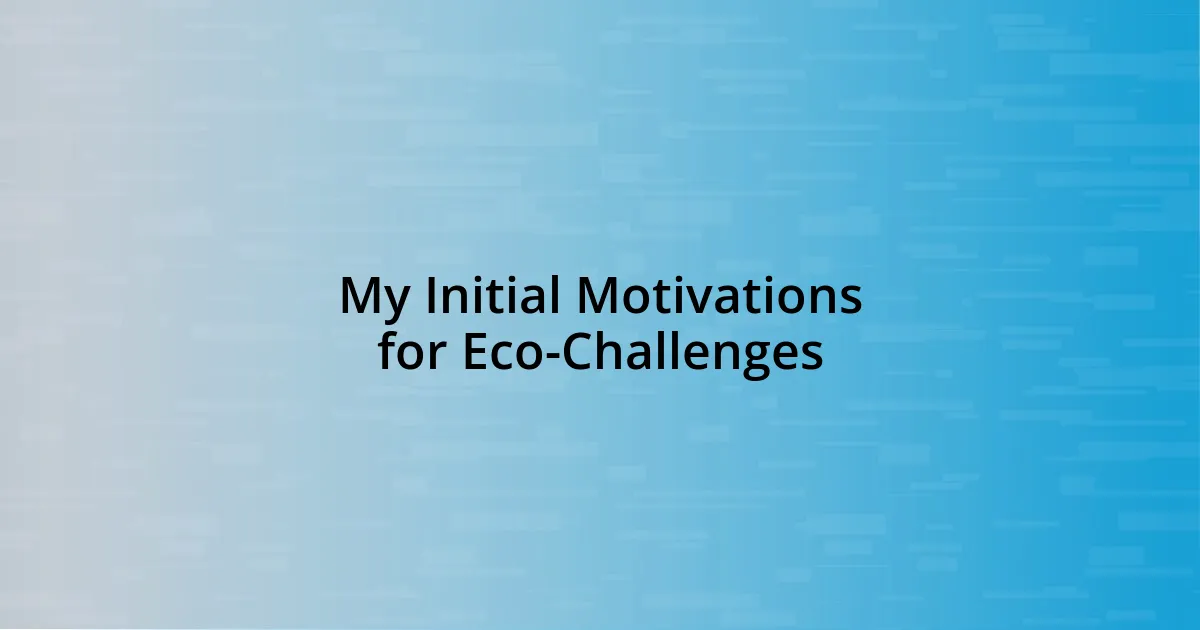
My Initial Motivations for Eco-Challenges
Participating in eco-challenges initially came from a deep-seated desire to make a tangible difference in my lifestyle. I vividly recall the moment I watched a documentary about plastic pollution—it left me feeling helpless yet motivated. I wanted to transform that feeling of despair into action, believing that even small changes could lead to significant outcomes.
I also felt compelled to set an example for my younger siblings. I remember one weekend when I took them to a local beach cleanup. It was incredible to see how engaged they became—laughing and working together with me. That day, I hoped to instill in them the importance of taking care of our planet. The experience not only reinforced my commitment to sustainability but also deepened our bond through a shared purpose.
Finally, eco-challenges offered me a chance to step outside my comfort zone. I was initially intimidated by the idea of cutting down my energy use and trying new methods of transport. However, when I finally swapped my car for a bicycle, I discovered a sense of freedom I hadn’t anticipated. It was exhilarating riding through my neighborhood, feeling the fresh air and noticing the world around me. My motivations grew from a place of fear to one of empowerment.
| Motivation | Description |
|---|---|
| Desire to Make a Difference | After watching a documentary on pollution, I felt compelled to transform my despair into concrete actions. |
| Setting an Example | Engaging my siblings in a beach cleanup helped me bond with them while instilling the importance of environmental care. |
| Embracing New Experiences | Switching from a car to a bicycle opened my eyes to the joys of sustainable transport and empowered me. |
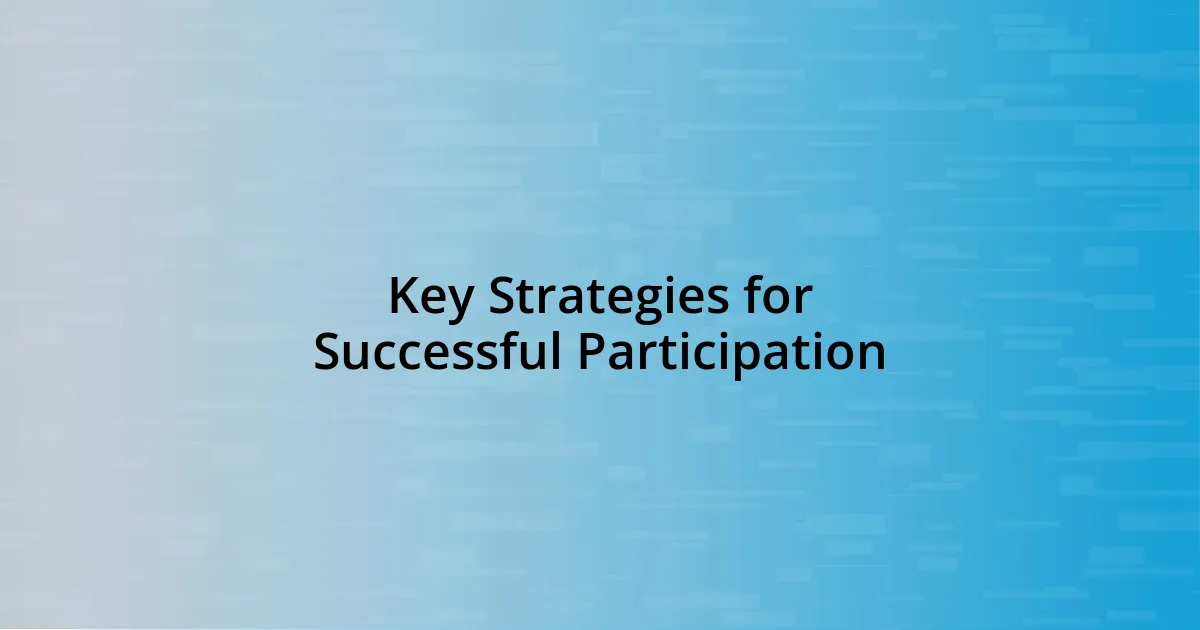
Key Strategies for Successful Participation
Finding success in eco-challenges isn’t just about knowing what to do—it’s about how to approach the entire experience. From my perspective, the key lies in setting realistic goals. When I first embarked on my journey, I remember overwhelming myself with lofty ambitions, which only led to frustration. Gradually, I learned to break my challenges into bite-sized tasks, celebrating every small victory along the way. This mindset shift allowed me to genuinely enjoy each step without the pressure of achieving perfection.
Here are some strategies that have worked wonders for me:
- Start Small: Choose one manageable change, like committing to a single plastic-free day each week. This makes the journey feel achievable.
- Create a Support Network: Surround yourself with people who share similar values. I found great encouragement from a local eco-group, where we exchanged tips and celebrated our progress together.
- Document Your Journey: I started a journal to track my eco-challenges. Reflecting on my progress not only kept me accountable but also highlighted how far I’d come—an essential boost on tougher days.
- Embrace Flexibility: Life happens! I’ve learned to adapt my goals when unexpected challenges arise, ensuring I stay motivated rather than discouraged.
- Celebrate Milestones: Whenever I reached a goal, like reducing my waste for a whole month, I treated myself—simple rewards like a nature hike or a zero-waste treat.
By implementing these strategies, I found that my eco-challenges became more than just tasks; they transformed into a fulfilling part of my lifestyle, making sustainability not only possible but enjoyable.
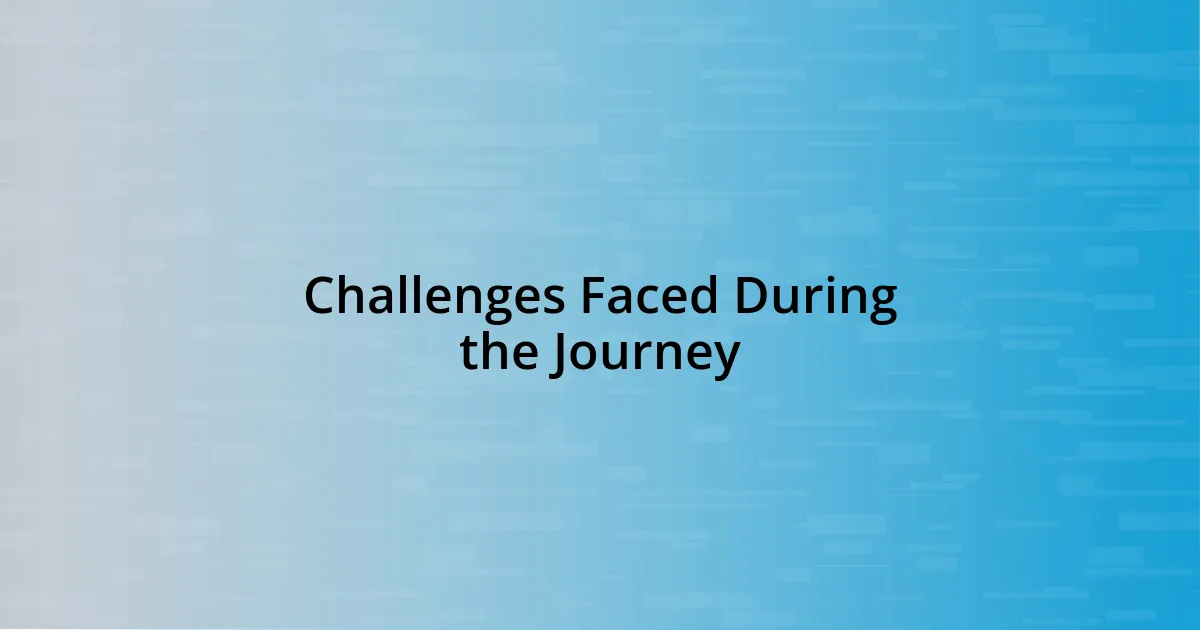
Challenges Faced During the Journey
Taking on eco-challenges was not without its hurdles. One of the most significant issues I encountered was adjusting my daily routine. For instance, when I decided to reduce my water usage, I suddenly found myself conscious of every drop—showering became a race against the clock. I remember the frustration I felt, wishing for simpler days when I didn’t need to measure out my needs. But those moments also sparked a newfound appreciation for resources I had previously taken for granted.
Another challenge was dealing with skepticism from friends and family. I vividly recall one dinner with close friends when I enthusiastically shared my recent foray into composting. I was met with raised eyebrows and polite chuckles. It made me wonder: why does making environmentally conscious choices sometimes feel like swimming against the current? Over time, however, I learned to navigate these social dynamics. Instead of seeking validation, I focused on sharing my passion through relatable stories and the tangible benefits I experienced.
Finally, the emotional rollercoaster of eco-challenges often caught me off guard. There were days I felt disheartened by setbacks, like when I found myself forgetting my reusable bags while grocery shopping. It’s easy to slip into self-doubt and question my commitment when faced with such mishaps. Yet, it was through these moments of vulnerability that I discovered the importance of self-compassion. I realized it’s okay to fall short sometimes; what matters is the effort I keep putting in, learning from my missteps rather than letting them define me.
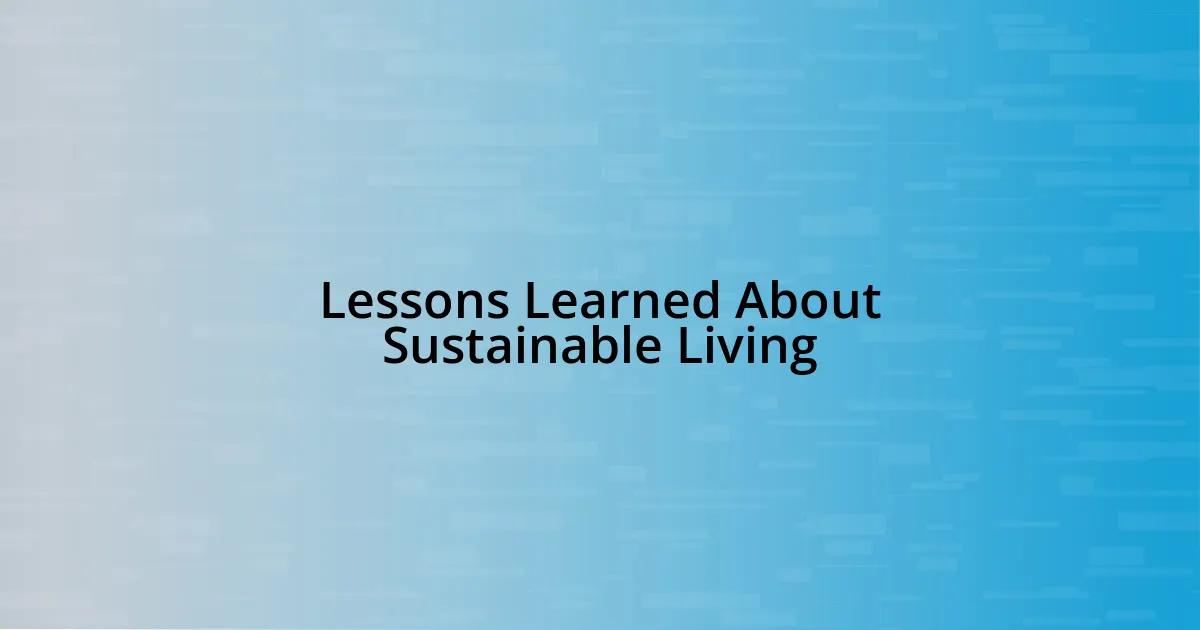
Lessons Learned About Sustainable Living
One standout lesson I learned about sustainable living is the power of mindful consumption. I remember standing in front of a grocery aisle, overwhelmed by the vast number of options available, and realizing how often I purchased items out of habit rather than necessity. This shift in perspective made me question, “Do I really need this?” Now, I’m much more intentional with my purchases, understanding the impact they have on the environment and my own wallet. Embracing minimalism not only lightened my load—literally and metaphorically—but also cultivated a deeper appreciation for what I choose to bring into my life.
Another interesting discovery was the joy of local sourcing. When I first joined a community-supported agriculture (CSA) group, it felt like receiving a surprise gift of fresh produce at my doorstep every week. I experienced real joy with each kale, zucchini, and heirloom tomato, feeling more connected to the land and my community. It’s amazing how relying on local farmers not only reduces my carbon footprint but also connects me with the food I eat. Have you ever tasted a tomato that’s been freshly picked? The difference is remarkable!
I also found that sharing my sustainable journey with others can spark inspiration in unexpected ways. I started informal monthly meetups with friends to discuss our eco-challenges, and I was surprised by how many were eager to join in. While initially hesitant, I eventually learned that discussing our struggles and successes can create a ripple effect of motivation within our circles. It made me realize: How often do we underestimate the power of community in driving change? Engaging others makes the process feel less daunting and transforms our individual efforts into a collective movement.
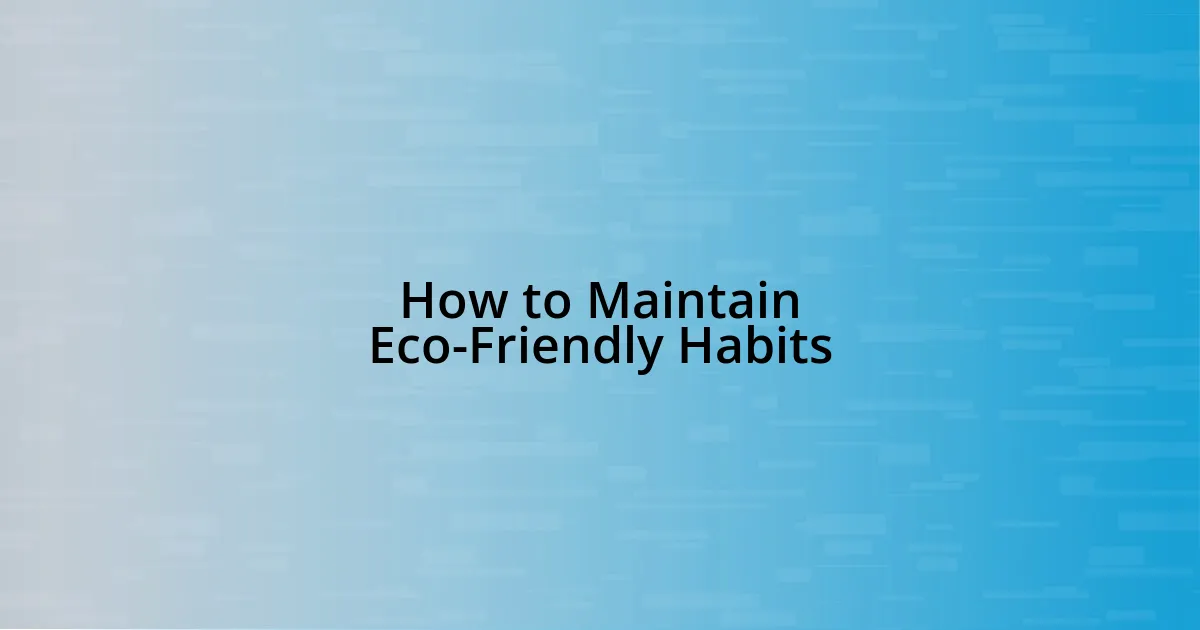
How to Maintain Eco-Friendly Habits
Keeping eco-friendly habits alive requires a blend of mindfulness and commitment. I remember when I created a list of my favorite sustainable practices, like using my reusable coffee cup and opting for public transportation. I’d tack it up in my kitchen as a daily reminder. Seeing those little actions in writing fueled my motivation—how can something so simple have such a lasting impact?
Accountability is another key factor in maintaining these habits. For me, I found that joining an online community dedicated to eco-friendly living helped tremendously. By sharing my goals and setbacks, I received diverse insights and encouragement from others facing similar challenges. There’s something magical about belonging to a group where everyone strives for a greener lifestyle—did you know it can be a game changer?
However, it’s essential to make these habits enjoyable, not burdensome. For instance, I turned my weekly grocery shopping into a scavenger hunt, seeking out local, seasonal produce. Not only did this keep things exciting, but it also nurtured my connection to food and local vendors. Isn’t it incredible how a shift in mindset can transform a mundane task into a delightful experience? Finding joy in eco-friendly practices truly fosters a sustainable lifestyle that feels less like a chore and more like a fulfilling journey.
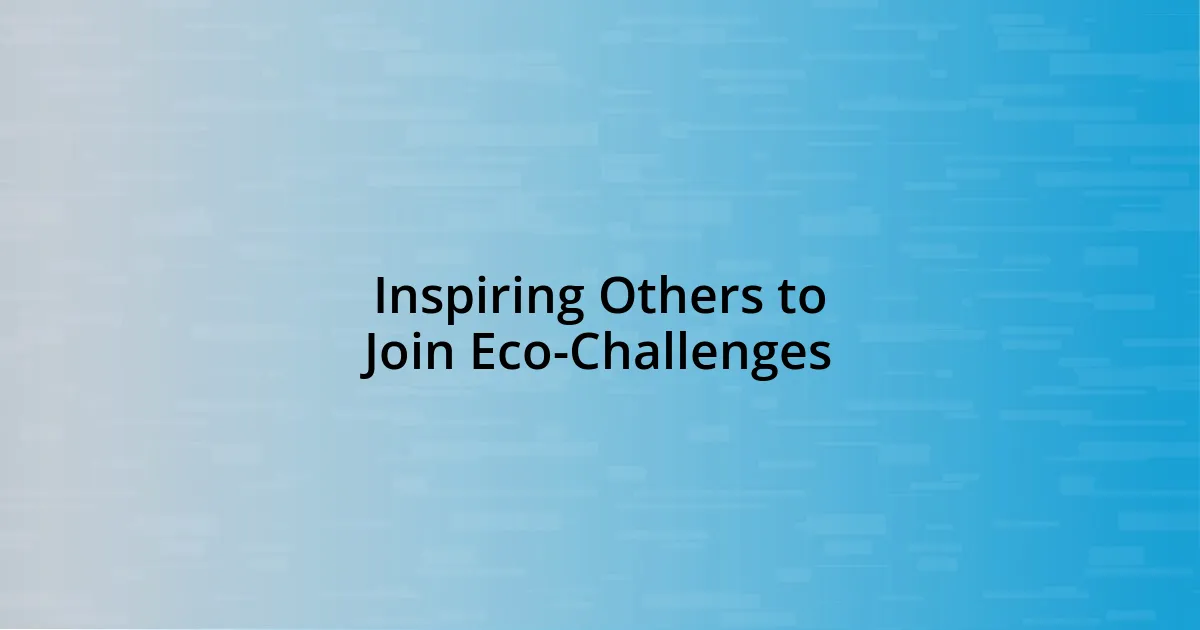
Inspiring Others to Join Eco-Challenges
In my experience, one of the most powerful ways to inspire others to join eco-challenges is through storytelling. I remember sharing a casual chat with my neighbor about my newfound eco-friendly habits, and by the end of our conversation, she mentioned wanting to try a zero-waste month with her kids. It dawned on me that real transformation can spark from simply talking about our journeys. Have you ever noticed how a personal story can light a fire in someone else?
Another effective approach is to create fun and engaging challenges that invite participation. I once organized a “Plastic-Free July” challenge with friends, and we turned our progress into a friendly competition. The excitement in our group was palpable; we celebrated every small victory and shared tips on overcoming hurdles. It was such a joy to see everyone’s creativity emerge as they discovered new ways to reduce plastic use. When we make eco-initiatives enjoyable, don’t we tend to invite more people to join the cause?
Lastly, social media has become an incredible platform for sharing eco-challenges. I regularly post updates of my efforts—whether it’s a delicious plant-based meal I made or an eco-friendly DIY project—often receive messages from friends eager to learn more. It’s heartwarming to witness how these small posts can motivate others to embark on similar journeys. Have you ever thought about how your daily actions online could inspire someone to make a positive change? Each of us has the power to influence change, even from behind a screen, and that’s something worth leveraging.

